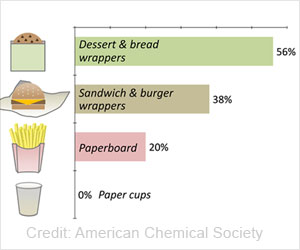
‘Tackling heart disease demands individual responsibility and actions at the population level. Hence, in addition to regulating the location and density of fast food outlets, local areas should also ensure proper access to supermarkets with healthy food.’
Tweet it Now
Study author Tarunpreet Saluja of the University of Newcastle, Callaghan, Australia said: "The findings were consistent across rural and metropolitan areas of New South Wales and after adjusting for age, obesity, high blood lipids, high blood pressure, smoking status, and diabetes. The results emphasize the importance of the food environment as a potential contributor towards health." "Ischaemic heart disease, including heart attack, is one of the leading causes of death worldwide," continued Mr. Saluja. "It is known that eating fast foods is linked with a higher likelihood of fatal and nonfatal heart attacks. Despite this, there is rapid growth in the purchase and availability of fast food. This highlights the need to explore the role of food availability in the probability of having a heart attack."
This retrospective cohort study included 3,070 patients admitted to hospital with a heart attack in the Hunter Region between 2011 to 2013. The database contained each patient's home postcode, allowing the researchers to analyze their surrounding fast food environment.
Fast food outlets were defined as the ten most popular quick-service food retailers in Australia, based on a population survey conducted in 2018. The researchers recorded the total number of outlets within each local government area and compared different areas to analyze the association between density of fast-food restaurants and incidence of a heart attack.
"Previous studies have shown that the poor nutritional value, high salt and saturated fat in fast food is connected to heart disease, yet the role of greater access to these restaurants has been less clear," said Mr. Saluja.
Advertisement
Professor Tom Marwick, Chair of the CSANZ 2019 Scientific Programme Committee, said: "This is an important paper that documents the association between fast foods and cardiac events, independent of risk factors. It will be crucial to explore whether this association is independent of the social determinants of disease, as we know that fast food outlets are often more common in disadvantaged areas. Nonetheless, the findings are a reminder that the fundamental drivers of cardiovascular disease burden may be altered by changes in public policy. The fact that the appropriate policy steps have not been taken, despite the cost of cardiovascular disease, remains as much a mystery in Australia as elsewhere in the world."
Advertisement
Source-Eurekalert















